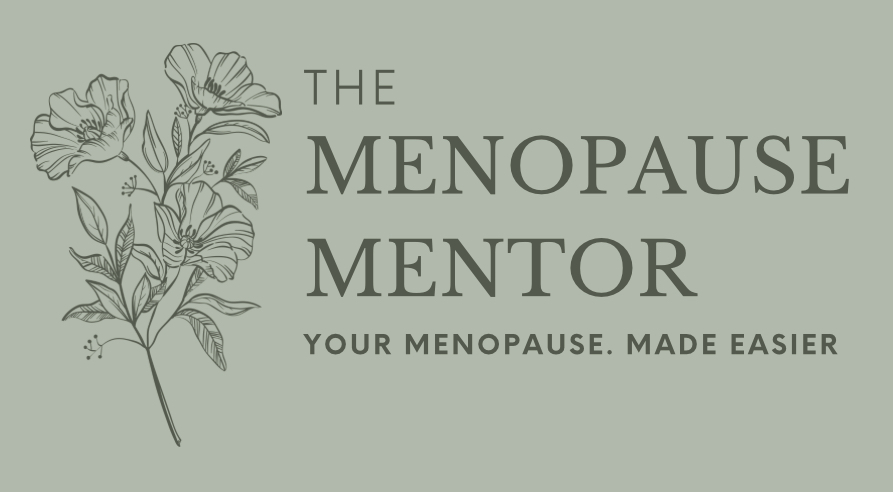
GUT HEALTH IN PERI & MENOPAUSE
- The Menopause Mentor

- Oct 5, 2025
- 2 min read

GUT HEALTH IN PERI & MENOPAUSE
Why it Matters and How to Support it!
🧠🦠 What’s the Connection?
During perimenopause and menopause, your hormone levels, especially oestrogen and progesterone, naturally decline.
These hormonal shifts don’t just affect your reproductive system; they also impact on your gut health.
The gut microbiome (the trillions of bacteria living in your digestive tract) plays a key role in:
• Hormone regulation
• Mood and brain health (via the gut-brain link)
• Metabolism and weight management
• Immune function
• Inflammation control

A disrupted or imbalanced gut microbiome (called dysbiosis) can make menopause symptoms worse and may increase your risk of issues such as digestive discomfort, brain fog, fatigue, weight gain, and chronic inflammation.
🔍 Common Gut-Related Changes in Midlife women
As hormones shift, you may notice:
• Bloating, gas, or constipation
• Food sensitivities or changes in digestion
• Weight gain, especially around the tummy
• Increased sugar cravings
• Worsening mood or anxiety
• Poorer sleep quality
These aren’t just “aging problems”, they’re often linked to gut health and the hormonal changes of this stage.
✅ How to Support Your Gut in Perimenopause & Beyond
Here are my top tips on how to support your gut health and support your body through perimenopause and beyond
1. Eat More Fibre
Fibre feeds beneficial gut bacteria.
Aim for:
• 25–30g per day
• Found in: fruits, vegetables, beans & pulses, whole grains, nuts, seeds

2. Probiotics
These are “good bacteria” that help rebalance your gut.
• Found in: yogurt, kefir, kimchi, sauerkraut, miso, tempeh
• Supplements can help too, especially strains like Lactobacillus and Bifidobacterium
I love Dr Vegan Gut Works - use code THEMENOPAUSEMENTOR at check out to receive 20% off every order!

3. Prebiotics
These are food for your probiotics!
• Found in: garlic, onions, leeks, asparagus, bananas, oats
4. Hydrate
Water keeps things moving and supports the lining of your gut and your overall health and wellbeing

5. Limit Sugar & Processed Foods
Refined carbs and added sugars feed harmful gut bacteria and increase inflammation.
6. Exercise Regularly
Physical activity improves digestion, boosts microbial diversity, and reduces stress.

7. Manage Stress
Chronic stress negatively impacts on your gut health.
Try:
• Mindfulness, meditation
• Gentle movement like yoga, Pilates or walking
• Deep breathing exercises & breath work
8. Sleep Well
Poor sleep disrupts your gut microbiome and vice versa. Aim for 7–9 hours nightly.

🌀 Bonus: Gut Health Supports Hormone Balance
Some gut bacteria can help metabolise your oestrogen. A balanced gut helps your body balance your hormones.
Final Thought
Taking care of your gut during perimenopause and menopause isn’t just about digestion, it’s a whole-body approach to feeling better, thinking clearer, and aging well. Even small changes can have a big impact on your overall health and menopause journey.
If you need more help and support, get in touch for your free consultation call today!







Comments